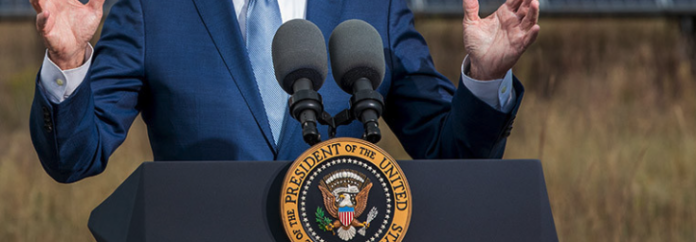Big news on the solar energy front: President Joe Biden’s administration has reimposed tariffs on solar panels after waiving them for two years. This decision is stirring up quite a bit of controversy, especially given the impact on the American solar industry and its competition with Chinese manufacturers. Let’s break it down.
In June 2022, the Biden administration suspended protective tariffs on cheap Chinese solar imports. This suspension ended officially on Thursday. While the reimposition of tariffs is meant to protect American producers, experts say it might be too little, too late. During the two-year hiatus, Chinese companies had plenty of time to flood the U.S. market and plan their next moves to sidestep future measures.
Mamun Rashid, CEO of Auxin Solar, voiced his frustration: “The damage has already been done. The administration left a backdoor open for foreign producers at a time when we should have been rebuilding domestic capacity.” Rashid criticized the administration for giving foreign producers a “blueprint for future loopholes.”
Joe Biden: “We’re gonna be shutting these plants down all across America, and having wind and solar.” pic.twitter.com/dkIu80sqZa
— Daily Caller (@DailyCaller) November 4, 2022
Rashid’s company was instrumental in prompting the Commerce Department to find that major Chinese solar companies dodged tariffs by routing products through other Asian countries. He suggests fully staffing Customs and Border Patrol and even considering a temporary moratorium on all imports to help U.S. manufacturers deal with the backlog of cheap imports.
Biden initially waived the tariffs to prevent the collapse of the domestic solar industry, which relies heavily on Chinese firms for supplies. Despite Congress passing a bill to end the waiver early, Biden vetoed it in May 2023. This decision allowed Chinese dominance in the market to continue unchecked for two more years.
American solar imports soared during this period, and the price of solar panels in the U.S. plummeted. The U.S. imported a record amount of solar capacity in 2023. This influx of cheap panels benefited Chinese producers, who used the time to establish production in Southeast Asia to avoid future tariffs.
Nick Iacovella of the Coalition for a Prosperous America explained, “The tariff moratorium was literally a green light to allow China to continue illegal activity for 24 months.” He noted that Chinese companies used the moratorium to build production in Southeast Asia, effectively bypassing U.S. trade laws.
A group of American solar companies is also filing an ongoing trade law case targeting cheap imports from Cambodia, Malaysia, Thailand, and Vietnam. Timothy Brightbill, representing U.S. manufacturers, emphasized the importance of this case in addressing Chinese firms’ circumvention of tariffs.
Interestingly, some Chinese solar manufacturers are already winding down their Southeast Asian operations due to the shifting U.S. trade landscape. This indicates the potential effectiveness of the new trade measures, but it remains to be seen how much impact they will have.







